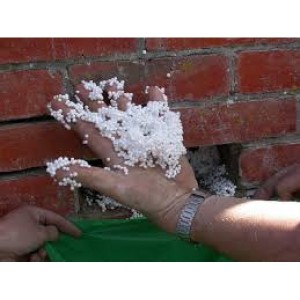News
Cavity Wall Insulation Article for LNPG members
Cavity Wall Insulation Article for LNPG members
As a recommended supplier to LNPG, we have asked Alliance Remedial Supplies Ltd to provide regular information to all landlords who are seeking to improve their tenanted properties.
For landlords with tenants on benefits or LHA tenants there are substantial grants/funding for the landlord to improve their tenants’ lot. In this article, Chris Reynolds discusses the pro’s and cons of Cavity Wall Insulation.
Paul Hilliard of LNPG (Paul) – Hi Chris, thank you for your time today in discussing this important topic on the pro’s and cons of Cavity Wall Insulation. What’s important to check when you look at a property that had evidence of damp?
Chris Reynolds of Alliance Remedial (Chris) – Thank you Paul for the invite to share this information with LNPG members. When carrying out damp surveys the method of construction needs to be established in the process of identifying damp and the reasons for it being present. In the instance of cavity wall construction the question of cavity wall insulation comes up.
Paul – I’ve heard mixed comments on Cavity Wall Insulation and its effect.
Chris – A fairly common reply to this question from Homeowners and Landlords is “I’ve been offered cavity wall insulation but I’ve heard of so many problems that I’ve decided not to have it.”
To offer an objective and impartial opinion, it’s a shame that so many property owners turn down the opportunity to improve the energy efficiency of their property based on a lack of information and what is often Chinese whispers.
Paul – I’ve had Cavity Wall Insulation installed in most of my properties but is now a good time to carry this out?
Chris – From a cost perspective there has never been a better time until now to have cavity wall insulation undertaken with the heavy subsidies available against the rising cost of energy bills.
Perhaps there is a negative ‘stigma’ associated with how cavity wall insulation is sold to us what with door knockers and fly leaflets bombarding us but that aside, cavity wall insulation is accredited, approved and regulated on a national basis which offers certain assurances.
Cavity Wall Insulation Can Be Effective
Paul – What exactly is Cavity Wall Insulation and what does it involve?
Chris – First and foremost, the three main types of materials used as cavity insulation; beads or granules, mineral wool and foam insulants are all tested and approved by the British Board of Agrement, (BBA) which states they have been tested, proved fit for purpose and achieve what the product sets out to achieve.
Then, bodies such as the Energy Savings Trust, Building Control and English Heritage all approve its use and recommend its application.
Finally, there is a national trade body called the National Insulation Association, (NIA), which has a code of practice for Installation Contractors to conform to and for property owners to refer to if they are dissatisfied with service received or subsequent problems. An independent 25 year guarantee is available through this trade body.
Paul – Some of my properties have a cavity but I’ve been told it’s unsuitable for insulation. Given that Cavity Wall Insulation is so heavily accredited why does it lead to such bad and commonly heard negativity?
Chris – Failures related to Cavity Wall Insulation are in the main, associated with damp bridging across the infill material from the outer brick to the inner. To be clear, the materials are not described as waterproof and not tested in that regard.
The most common failure in this instance is a poor survey carried out by the Insulation contractor. If you decide to proceed with cavity insulation it is imperative the nature of the cavity construction is understood and the structural condition is considered.
Early cavity construction methods used permeable materials such as lime mortars which are intended to retain moisture whilst allowing the structure to breathe. As weather conditions dry so does the wall.
With more common materials the external wall should be examined for the condition of the wall ties, pointing, debris in the cavity, damp proof course, rainwater goods and any cracks from structural movement.
Paul – So what can or should be done to ensure you get a good job done?
Chris – A reputable company and their surveyor will look for these things and make recommendations for any improvements or maintenance to be carried out ahead of the insulation. Some companies now, as a matter of routine, apply an external masonry water repellent sealer to the walls insulated.
The width of the cavity is also a consideration in that if it is too narrow cavity insulation is not recommended.
Paul – That’s the reason I was given for some of my cavity walls to be rejected. So what’s the key for a successful cavity wall installation?
Chris – The key to a successful installation, of which there have been many thousands, is down to engaging a reputable company with an experienced and honest surveyor. The current condition of the external wall and nature and age of the property needs to be fully considered and in good order for a successful installation.
Paul – Many thanks for your comments and tips. I trust we can meet up again soon to discuss more tips on the causes of damp in homes.
Cavity Wall Insulation Installers
Alliance Remedial Supplies Ltd and LNPG Limited are not cavity insulation installers and have no association with any installer or trade body.
This article is for information purposes only. Details of the trade bodies and organisations mentioned are available via the internet or call Alliance Remedial Supplies Ltd on 01329 235252 for details.


